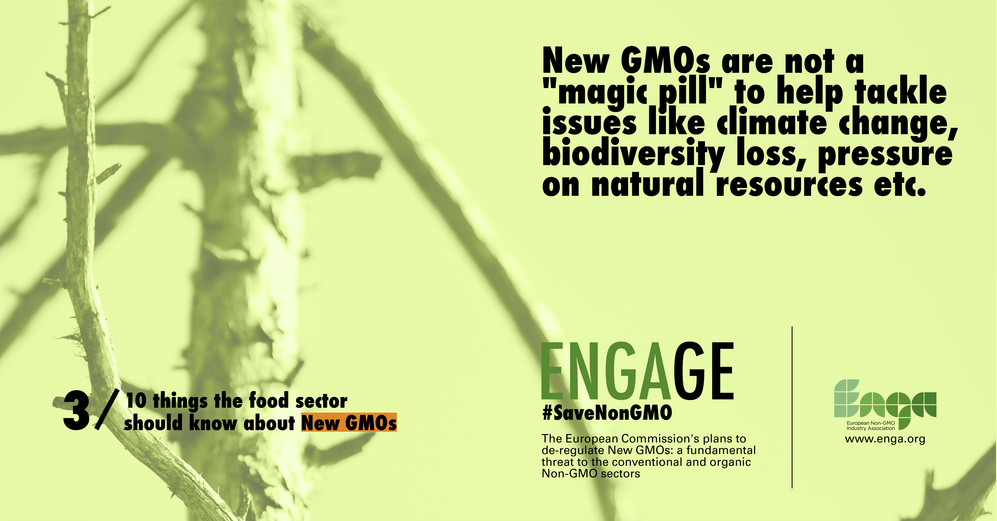Proponents of New GMOs make the case for them by making broad claims about their sustainability and how they can help tackle issues such as food security and other societal problems. In fact, New GMOs are no “magic pill”. Whether they will play a role in solving environmental and agricultural problems is not at all clear.
Currently only three crops are on the market: an herbicide tolerant oilseed rape in the US and Canada, a soybean with an altered fatty acid profile to be used in deep fryers (USA) and a tomato made to lower blood pressure in Japan. None of them offers solutions to climate change, drought, pressure on natural resources or to feeding the world’s growing population.
The first New GMO with an EU authorisation application is Corteva’s herbicide resistant, insecticides-producing Crispr/Cas maize. This means a new genomic technique has been used to produce a plant with exactly the same traits which constitute old GMOs. ENGA does not consider a glufosinate-resistant (a herbicide-resistant) crop, which produces an insecticide in each cell, as a contribution to a sustainable agriculture in line with the objectives of the European Green deal and its aim to reduce the use of chemical pesticides by 50 percent by 2030.
According to a most recent JRC report on “Current and future market applications of new genomic techniques” (part of the EC’s documents in context of its study on new genomic techniques) 16 new GM plants worldwide are in a precommercial stage, that means they could make it to the market within the next five years. 6 out of these 16 are herbicide-resistant – made to withstand pesticides – and, therefore, in contradiction to the Green Deal objectives.
There is an obvious gap between the reality of New GMO plants and the high expectations linked to them. This gap is very dangerous in terms of looking for real solutions. There is real urgency now in coming up with solutions to the pressing issues of today, such as climate change, drought, pressure on natural resources and feeding the world’s growing population etc. The problems around food security, of course, have been made more urgent by the war in Ukraine. But instead of promoting one technical approach that might deliver or not, it would be more responsible to support and set up resilient systems like organic farming and agro-ecology. These systems exist and have been proven to work. Instead, claiming that New GMOs are the answer to these problems is cynical greenwashing which aims to pull the wool over the public’s eye.
